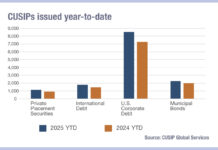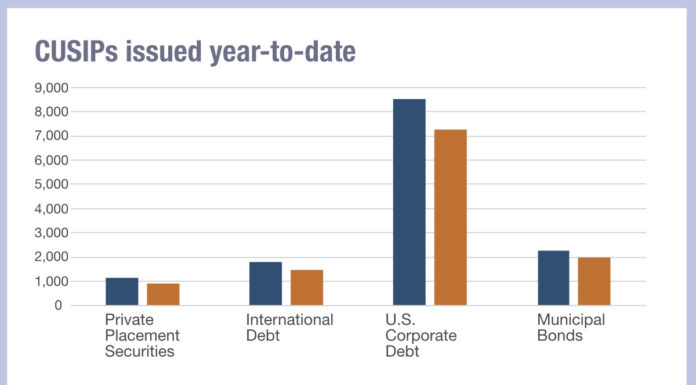
The Invesco AT1 Capital Bond UCITS ETF has surpassed US$1 billion in assets under management, (AUM) with around US$500 million of net new assets having been invested in the ETF since the height of the pandemic volatility in March 2020. Invesco notes that investors have continued seeking higher yields and greater diversification for their income portfolios.
AT1s are a specific type of debt instrument issued by European banks and other financial institutions. Their yields are not driven by the riskiness of the issuer, as with other high yield bonds, but by a contingency element that triggers a conversion into cash or common equity if the issuer’s capital drops below a pre-set level. AT1s are intended to act as a buffer in extreme conditions and will have a lower credit rating, and in turn higher coupon, than the senior debt issued by the same issuer.
The ETF’s AUM now represents an 85% share of the AT1 ETF market in Europe according to Bloomberg and Invesco, as of 19 January 2021.
Paul Syms, head of EMEA ETF Fixed Income Product Management at Invesco, said: “Our ETF has grown to such scale that it has opened the door to larger investors who may have holding limits and require a vehicle that can accommodate bigger trade sizes. In fact, ours is the only ETF in Europe that offers the scale and liquidity for institutional investors to gain diversified, cost-effective exposure to AT1s.”
Syms noted that when the first AT1 bonds were launched in 2013, the market was relatively small and largely unknown which meant there were greater opportunities to add value through security selection.
“However, the market has matured since then,” he said. “More is known about AT1s and the market is more liquid, especially for the USD 140 billion worth of issues denominated in dollars. The market has all the ingredients you need to develop a passive strategy. And although we have the largest AT1 ETF in Europe, its AUM is less than 1% of the value of the USD-denominated AT1 market. That means there is still huge growth potential.”
A recent report published by Invesco entitled ‘AT1 bonds: Better as beta?’ underscored the increasing difficulties to deliver real outperformance through an actively managed approach given the maturity of the AT1 market. The report concluded that the correlation between the bonds in the sector is so high that it dramatically reduces the opportunities for portfolio managers to generate excess returns through security selection.
The analysis suggested that between June 2018 and the market sell-off in March 2020, the median pairwise correlation across a sample of 20 of the largest and most liquid USD AT1 bonds over six-month rolling periods was 78%. During the sell-off, the correlations spiked to nearly 100%. A likely reason for this high correlation, the report found, was that financial sector credit is an unusually narrow and homogenous investment universe.
©Markets Media Europe 2025


























